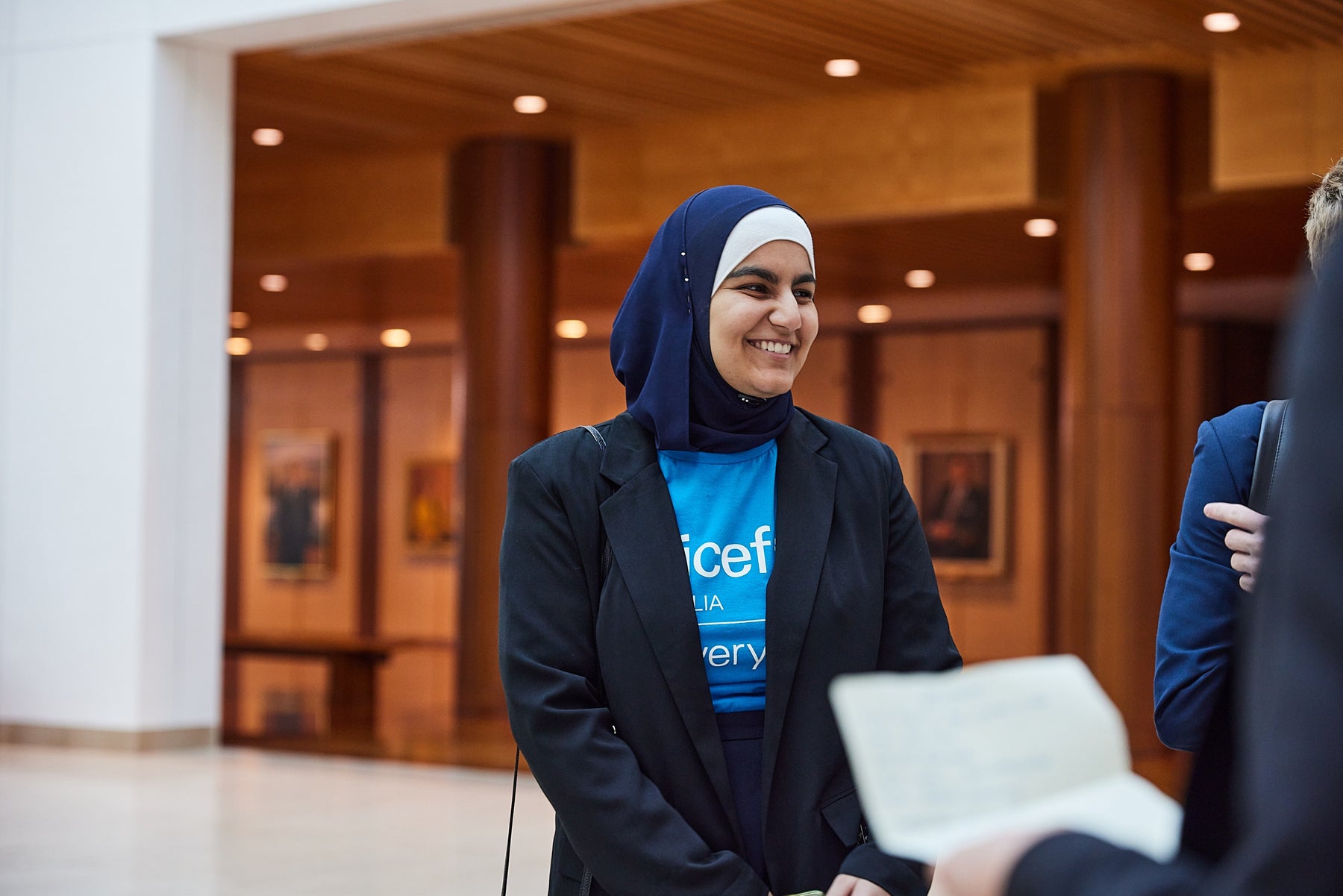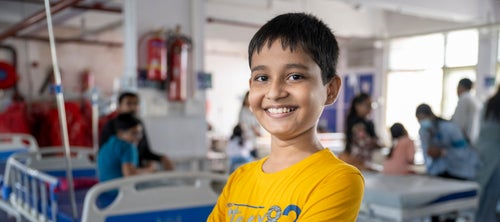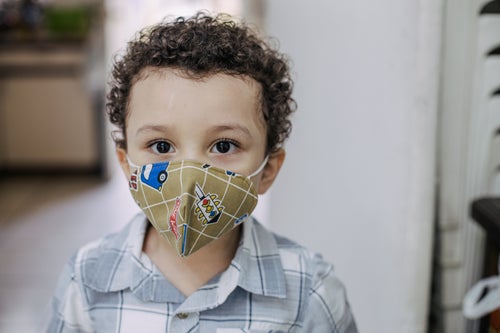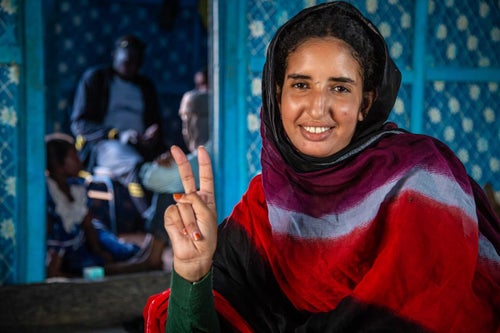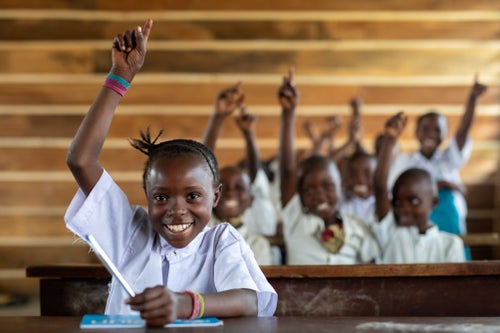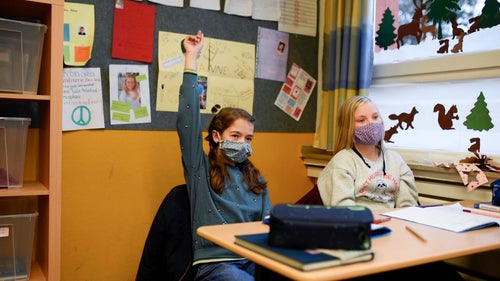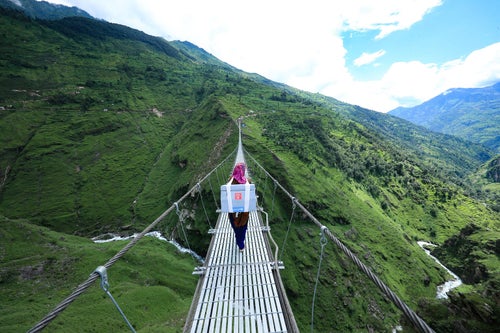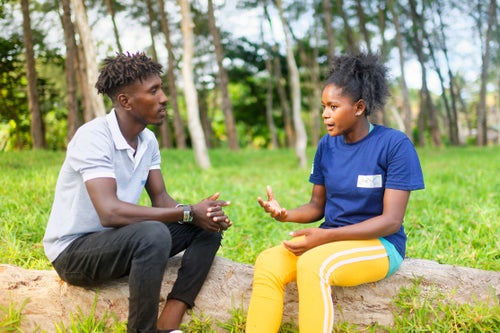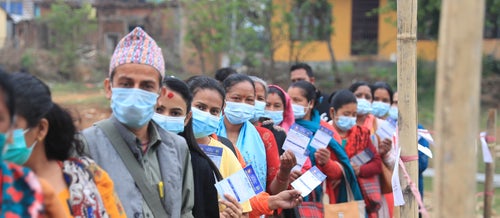Hawa, 20, is a UNICEF Australia Young Ambassador who works at a local pharmacy, and like many of her peers, did so throughout the shutdown. She is also studying a Bachelor of Laws/Bachelor of Social and Political Sciences in Sydney.
The plexiglass shields went up at major supermarkets, masks became prominent on the face of every second person, gloves were scattered across the city, and shops ran out of basics, like hand sanitiser, soap and toilet paper – which became the new luxury items no one could find.
There was huge panic and people bought in bulk when they did not need to.
Some people were kind, patient and generous, others were frightened or nervous, but some were selfish and angry – and in many cases young people working on the frontlines of this crisis bore the brunt.
"I work at the supermarket so we had to implement all of the social distancing and bollard things so that you could stand on certain sides of the shop,” she said. “And I had to twice now call the police on people that have verbally abused me."
A recent survey by UNICEF Australia found one in five (21 per cent) young people (13-17 yr old) work in a job that puts them at risk of contracting COVID-19 – and did so as essential employees throughout the shutdown, dealing with panic buying, charged tempers and the challenges of implementing new social distancing rules. Two in five (44 per cent) also feel there has been a lack of recognition of the role young people play working on the frontlines.
At times it has felt overwhelming. Imagine being a glass of water that’s already full and then imagine a jug of water being suddenly poured on top of that glass of water. This is how it has felt to me and countless friends I have spoken to.
My experiences were mixed. Working at a Sydney pharmacy, some days I saw incredible amounts of community support and cohesion, and other days I just wanted to go home and forget that I had to come back to work the next day as an essential worker.
The highlight of my time was when a little girl ran up to me at work and handed me a flower, saying thank you for your hard work and perseverance.
It is moments like these that spread encouragement and increase morale because small acts of kindness are almost contagious.
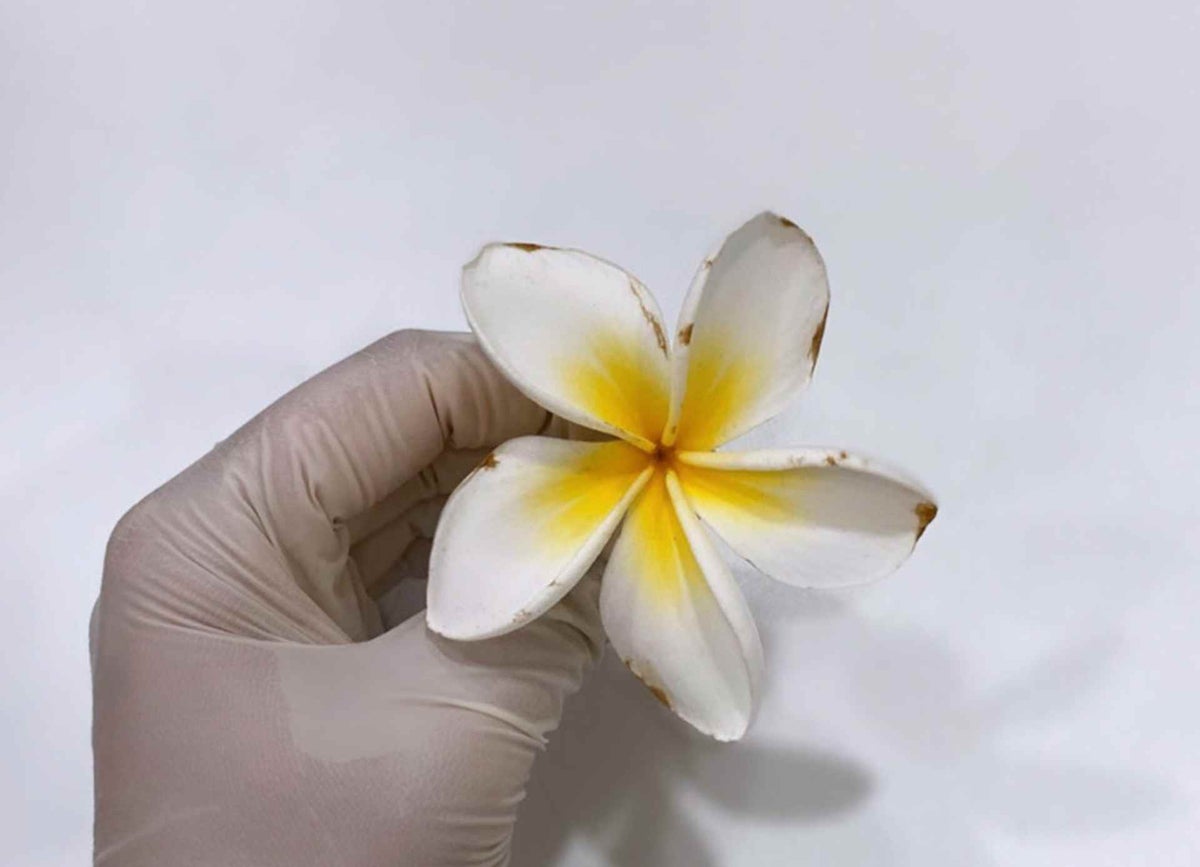
We have all heard about numerous people refusing to obey the social distancing rules, spitting on workers, and many other forms of physical and verbal abuse.
We even had one customer who came in with a script for the medication initially thought to help treat the virus. It was obvious that they were expected to be self-isolating and were at high risk of spreading the virus within the pharmacy.
Working on the frontline
As part of UNICEF Australia’s research for the “Living in Limbo” research on how COVID-19 has affected our young generations, I have been listening to young people discuss the experiences of the pandemic and response measures. We heard from several young frontline workers who spoke of heated arguments and assaults. One teenage student from regional Tasmania told UNICEF Australia that she had to call the police twice, while working as a frontline worker.
“I work at the supermarket so we had to implement all of the social distancing and bollard things so that you could stand on certain sides of the shop,” she said. “And I had to twice now call the police on people that have verbally abused me.”
“So I have had to put in two written statements in the last three months of customers that don’t want to follow protocol and it’s making it difficult to go to work at the moment.”
I heard from another young student from regional NSW, who also works at a pharmacy who described the panic buying that was all too common at this time.
“I know especially a lot of the stock has been completely taken, we can’t order stock in… it’s simple stuff, like paracetamol or children’s Nurofen.”
“Those people who need Ventolin have to have a prescription and to get into a doctor’s appointment in town it takes at least a month to book ahead so it’s been such a stressful thing. I know personally I’ve had to turn down someone coming in for Ventolin and she was, she had to go to the hospital because she practically couldn’t breathe and we just couldn’t give her anything because we didn’t have any stock…”
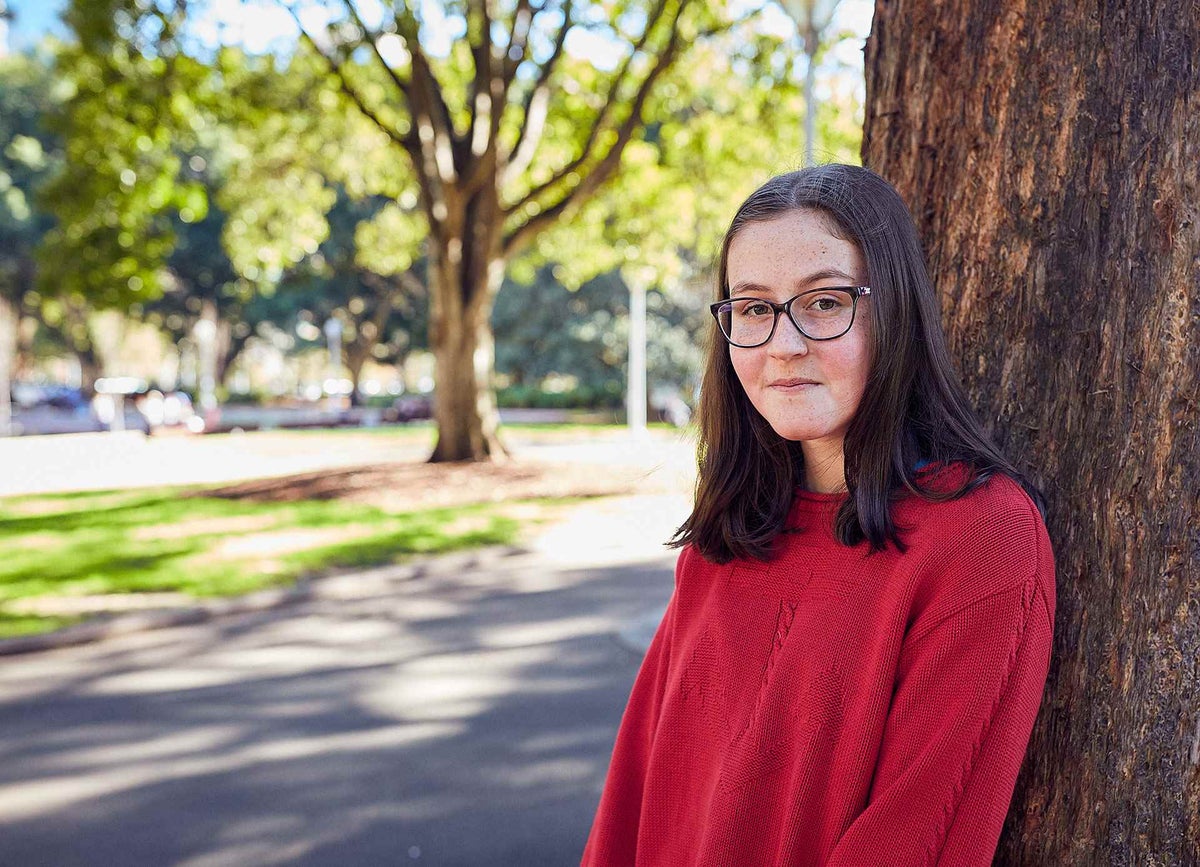
Emily, a year 12 student and one of my fellow UNICEF Australia Young Ambassadors, also worked at her local supermarket throughout the shutdown.
“Since the start of the pandemic, my workplace has had to plaster signs around the store, stating that abusing staff will not be tolerated and the police will be called if this was to occur.”
“There have been incidents where young staff members working their usual few hours on registers have been verbally abused and brought to tears by customers complaining.”
Emily says that despite this, personally her experiences were mostly positive, and she enjoyed the camaraderie of her small regional town in Victoria.
“As the supermarket started to struggle like all small businesses, we were becoming short-staffed with many customers having to wait the appropriate 1.5 metres away before being served.”
“Having worked there for two years, I was sure this wait time would cause friction and aggravate the already charged atmosphere after our town had its first diagnosed case of COVID-19, but I was pleasantly surprised with almost all customers being extremely patient and calm.”
Many young people, like Emily, also faced risks working throughout the coronavirus pandemic.
“I am considered more vulnerable to COVID-19 as I am an asthmatic,” she explains. “It worries me going to work on the ‘frontlines’ when our supermarket has limited access to personal protective equipment (PPE).”
“At the moment we have gloves supplied to wear during shifts but no protective screens.”
Many of the young people we listened to as part of the ‘Living in Limbo’ research, were also concerned about placing a family member or friend at risk of contracting the virus.
“My nan has Alzheimer’s,” explained one student from Sydney. “Sometimes we have to take care of her… I’m hesitant to go and help [because] I work at a supermarket. With the increase in customers, I’m not sure whether or not I’m going to get it. And I’m fine if I get it - I know that I’ll probably most likely be able to get through it and be fine - but I’m more worried about what if I don’t know I have it and I give it to somebody and they get sick and they die?”
"There have been incidents where young staff members working their usual few hours on registers have been verbally abused and brought to tears by customers complaining."
Across Australia, all aspects of young people’s lives have been impacted by the COVID-19 pandemic and national response to it. While some young people are equipped with the tools to cope, many others are struggling – particularly those already disadvantaged.
Learn more about how COVID-19 is affecting young people in Australia through our Living in Limbo report.
Related articles
Stay up-to-date on UNICEF's work in Australia and around the world



